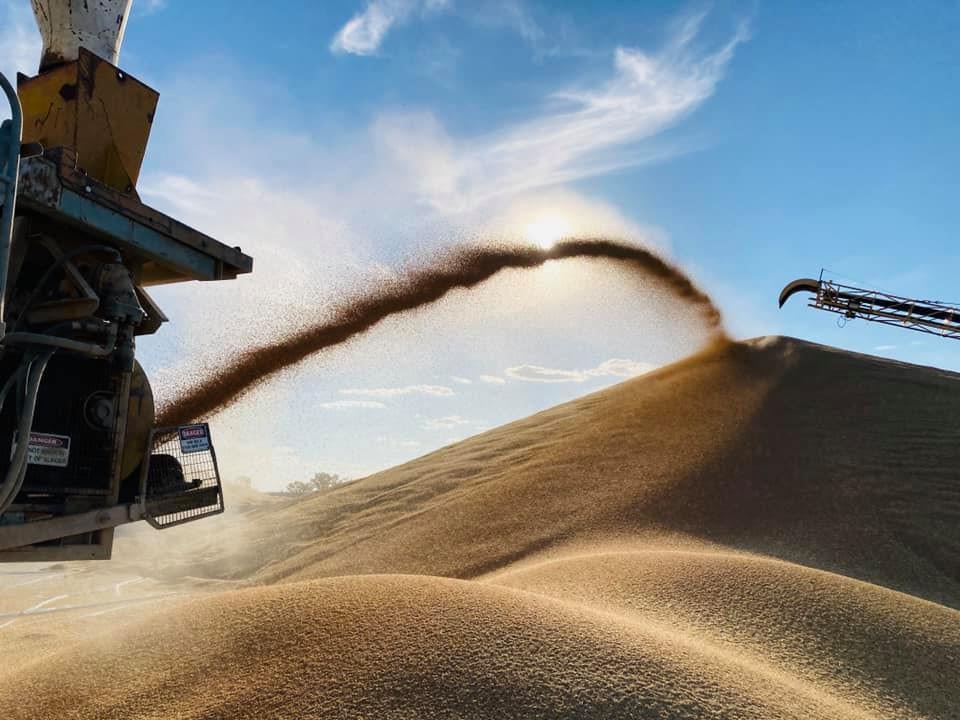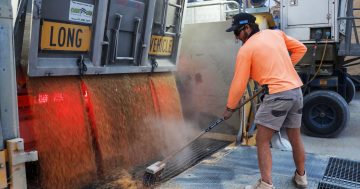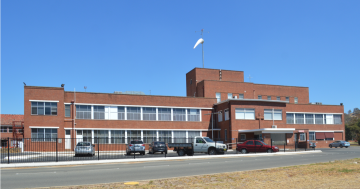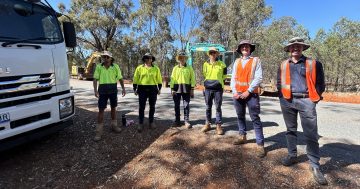
The Fair Work Commission approved a “protected industrial action ballot” for GrainCorp workers after negotiations with management broke down. Photo: GrainCorp.
With grain handlers set to begin stop-work actions tomorrow as part of protected industrial action to demand fair pay, GrainCorp’s recent offer has fallen short of the union’s expectations for a 30-cents-per-hour increase.
Hundreds of GrainCorp workers will begin a month of random one-hour stoppages at grain-handling sites throughout the state from tomorrow (Tuesday, 29 October).
Negotiations broke down at the Fair Work Commission last week after GrainCorp executives refused to agree to an additional 1 per cent wage increase in the third year of the new agreement.
The Australian Workers’ Union (AWU) said 1 per cent equated to about 30 cents an hour for grain handlers, which won’t take effect for two years.
“We’re now in full swing for what’s going to be another record harvest, and it’s just 30 cents an hour for relatively low-paid workers who have only received a 6 per cent wage rise, while the CPI [Consumer Price Index] has increased by over 13 per cent in the last three years,” AWU NSW secretary Tony Callinan told Region.
“GrainCorp should find the extra 30 cents an hour, avoid industrial action, and let’s get on with the harvest.
“Thirty cents per hour in two years would be a minor rounding error on GrainCorp’s balance sheet.
“Our members work hard to deliver GrainCorp’s bumper profits; they are fed up with low wage increases, and GrainCorp doesn’t think they are worth an extra 1 per cent.”
Mr Callinan added that annual bonuses, at GrainCorp’s discretion, would not suffice this time.
“These workers perform the same tasks as their colleagues in Queensland, and they want to be paid the same,” he said.
”That’s just plain fair, and I’m pretty sure it passes the pub test, especially one south of the border.
“There will be trucks lined up at grain bunker silos all over western NSW.
“We’ll start seeing trucks and trains not being loaded, and we’ll see if that brings GrainCorp back to the table.”

Australian Workers’ Union NSW secretary Tony Callinan Photo: AWU.
GrainCorp head of corporate affairs Jess Simons told Region that the company returned to the Fair Work Commission last week with hopes of reaching an agreement with the AWU and delegates.
“We put forward an offer of 14 per cent over three years, an increase in the sign-on bonus to $1000, and back pay to 1 July, 2024; however, this offer was not accepted,” Ms Simons said.
“We believe this is a fair and generous offer that recognises the value of our people, who are at the heart of our operations.
“It’s deeply disappointing that rather than seizing the opportunity to resolve the dispute, the AWU has decided to escalate the process towards protected industrial action at the most critical time of year for NSW growers and their businesses.”

GrainCorp head of corporate affairs Jess Simons. Photo: Jess Simons LinkedIn.
Ms Simons said GrainCorp respected union members’ rights to take protected industrial action.
“We are committed to achieving an agreement for our employees, which we will continue to work toward,” she said.
“In addition to ongoing negotiations with all our employees, we are focused on minimising the impact of any industrial action on growers, our key customers, and the communities in which we operate.
“Our teams are working to understand the potential impact of any protected industrial action and ensure that harvest activities can continue at our sites.
“We will communicate directly with our grower customers to keep them informed as the situation develops.”
The AWU claims that despite grain handlers receiving annual pay increases between 2021 and 2023, inflation rates of 2.86 per cent, 6.59 per cent and 4.10 per cent during those years have led to a 7.5 per cent decline in real wages.
In 2021, GrainCorp made a profit of $139 million, followed by $177 million in 2022, and $250 million in 2023.
The Fair Work Commission approved a ‘’protected industrial action ballot’’ for GrainCorp workers after negotiations with management broke down. On 22 October, the majority of AWU members at GrainCorp voted to begin industrial action.
Grain handlers are responsible for moving and storing wheat, canola, barley, oats and other grains. Freshly harvested crops are trucked from rural properties to bunker silos for storage before being loaded onto trains for transport to the coast and shipment to overseas markets.
Harvesting of winter crops has already begun in parts of western NSW and will increase in the coming weeks.










